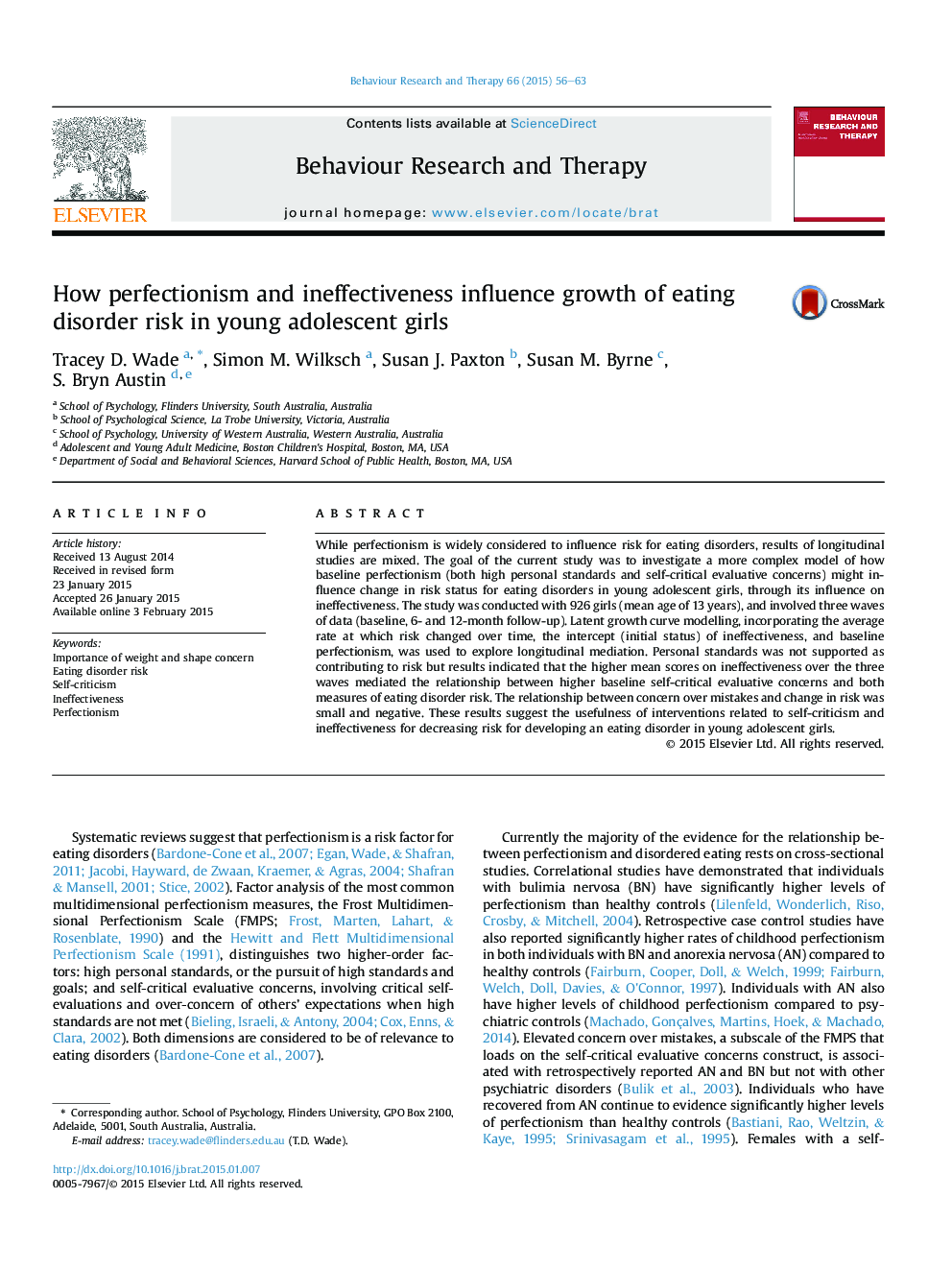| Article ID | Journal | Published Year | Pages | File Type |
|---|---|---|---|---|
| 901853 | Behaviour Research and Therapy | 2015 | 8 Pages |
•We examined a model to explain increased risk of disordered eating in young adolescent girls.•The relationship between perfectionism and increased risk was mediated by levels of ineffectiveness over time.•Only concern over mistakes and not personal standards perfectionism was implicated.
While perfectionism is widely considered to influence risk for eating disorders, results of longitudinal studies are mixed. The goal of the current study was to investigate a more complex model of how baseline perfectionism (both high personal standards and self-critical evaluative concerns) might influence change in risk status for eating disorders in young adolescent girls, through its influence on ineffectiveness. The study was conducted with 926 girls (mean age of 13 years), and involved three waves of data (baseline, 6- and 12-month follow-up). Latent growth curve modelling, incorporating the average rate at which risk changed over time, the intercept (initial status) of ineffectiveness, and baseline perfectionism, was used to explore longitudinal mediation. Personal standards was not supported as contributing to risk but results indicated that the higher mean scores on ineffectiveness over the three waves mediated the relationship between higher baseline self-critical evaluative concerns and both measures of eating disorder risk. The relationship between concern over mistakes and change in risk was small and negative. These results suggest the usefulness of interventions related to self-criticism and ineffectiveness for decreasing risk for developing an eating disorder in young adolescent girls.
